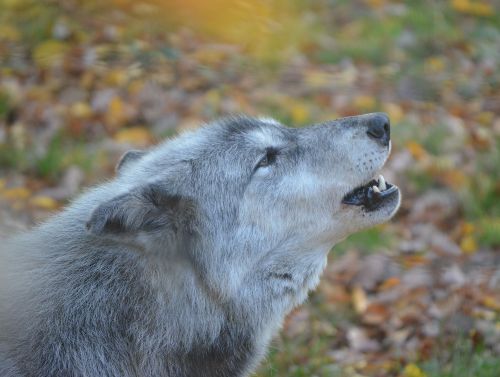Is there a full moon already?
Karoline Wacker (intern)
12.11.2019
Wolves howl at the moon and preferably at a full moon.
This is by far one of the most popular myths about wolves and our visitors always ask us if this is based on facts or on fantasy.
We still don’t know exactly the reasons why wolves are howling. But we know they do it to communicate with each other and they are not only doing this at night or when there is a full moon. Our wolves at the Wolf Science Center (WSC) are often howling more than once per day. They howl when the trainers are entering the park in the morning, they howl for a pack-member which left the rest of the pack behind to go on a walk, they answer the siren-call on Saturday and some of them howl rather vigorous if the vet enters the park. But sometimes they also start howling without any obvious reason – at least not obvious for us human.
But where does the myth come from, when wolves seemingly howl at any time of the day?
It is believed that the myth is based on the activity pattern of the wolves. Wolves are very adaptable and thus in some regions they are active in the daytime and in some areas they are more active at dusk and dawn. Of course, that still does not explain the story of the full moon. However, their activity pattern shows that they need some light to go hunting and if you ever were out in a forest at a full moon night, you know how bright a full moon can be. This light allows the wolves to hunt at night. With more light they are more active and thus it is more likely to hear them howl on such nights.
What was very interesting for me to discover is the fact that after a while you can tell the wolves pretty well apart from the way they are howling. Wamblee, for example, can howl in two voices. If he keeps continuous note for a while, you also can hear a rough and scratchy sound as he continues to howl. It almost sounds like a speaker malfunction. Yukon howls at a frequency outside of human hearing, but can also howl in a beautiful bright tone, while Nanuk has a low and rough howl. Taima and Tekoa, on the other hand, often have to tune in before they really start howling. This sounds like a mix of barking and hyena shouts. In this way every wolf has its own unique howl.
So if you visit us at the WSC, listen carefully when our wolves howl, maybe you also find these differences.